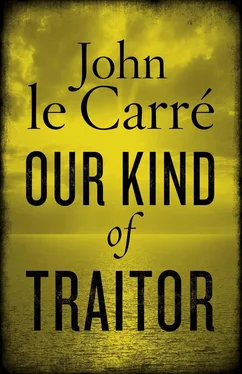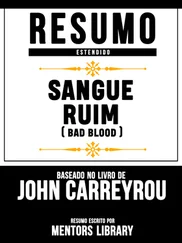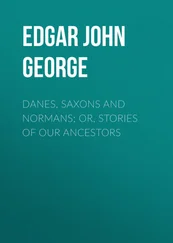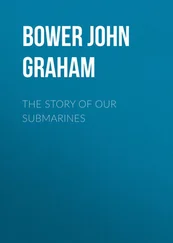John le Carre - Our kind of traitor
Здесь есть возможность читать онлайн «John le Carre - Our kind of traitor» весь текст электронной книги совершенно бесплатно (целиком полную версию без сокращений). В некоторых случаях можно слушать аудио, скачать через торрент в формате fb2 и присутствует краткое содержание. Жанр: Триллер, на английском языке. Описание произведения, (предисловие) а так же отзывы посетителей доступны на портале библиотеки ЛибКат.
- Название:Our kind of traitor
- Автор:
- Жанр:
- Год:неизвестен
- ISBN:нет данных
- Рейтинг книги:4 / 5. Голосов: 1
-
Избранное:Добавить в избранное
- Отзывы:
-
Ваша оценка:
- 80
- 1
- 2
- 3
- 4
- 5
Our kind of traitor: краткое содержание, описание и аннотация
Предлагаем к чтению аннотацию, описание, краткое содержание или предисловие (зависит от того, что написал сам автор книги «Our kind of traitor»). Если вы не нашли необходимую информацию о книге — напишите в комментариях, мы постараемся отыскать её.
Our kind of traitor — читать онлайн бесплатно полную книгу (весь текст) целиком
Ниже представлен текст книги, разбитый по страницам. Система сохранения места последней прочитанной страницы, позволяет с удобством читать онлайн бесплатно книгу «Our kind of traitor», без необходимости каждый раз заново искать на чём Вы остановились. Поставьте закладку, и сможете в любой момент перейти на страницу, на которой закончили чтение.
Интервал:
Закладка:
Our kind of traitor
John Le Carre
1
At seven o'clock of a Caribbean morning, on the island of Antigua, one Peregrine Makepiece, otherwise known as Perry, an all-round amateur athlete of distinction and until recently tutor in English literature at a distinguished Oxford college, played three sets of tennis against a muscular, stiff-backed, bald, brown-eyed Russian man of dignified bearing in his middle fifties called Dima. How this match came about was quickly the subject of intense examination by British agents professionally disposed against the workings of chance. Yet the events leading up to it were on Perry's side blameless.
The dawning of his thirtieth birthday three months previously had triggered a life-change in him that had been building up for a year or more without his being aware of it. Seated head in hands at eight o'clock in the morning in his modest Oxford rooms, after a seven-mile run that had done nothing to ease his sense of calamity, he had searched his soul to know just what the first third of his natural life had achieved, apart from providing him with an excuse for not engaging in the world beyond the city's dreaming spires.
*
Why?
To any outward eye, his was the ultimate academic success story. The State-educated son of secondary-school teachers arrives in Oxford from London University laden with academic honours and takes up a three-year post awarded him by an ancient, rich, achievement-driven college. His first name, traditionally the property of the English upper classes, derives from a rabble-rousing Methodist prelate of the nineteenth century named Arthur Peregrine of Huddersfield.
In the term-time, when he isn't teaching, he distinguishes himself as a cross-country runner and sportsman. On his spare evenings he helps out in a local youth club. In vacations he conquers difficult peaks and Most Serious climbs. Yet when his college offers him a permanent Fellowship – or to his present soured way of thinking, imprisonment for life – he baulks.
Again: why?
Last term he had delivered a series of lectures on George Orwell under the title 'A Stifled Britain?' and his rhetoric had alarmed him. Would Orwell have believed it possible that the same overfed voices which had haunted him in the 1930s, the same crippling incompetence, addiction to foreign wars and assumptions of entitlement, were happily in place in 2009?
Receiving no response from the blank student faces staring up at him, he had supplied it for himself: no, Orwell would emphatically not have believed it. Or if he had, he would have taken to the streets. He would have smashed some serious glass.
*
It was a topic he had thrashed out mercilessly with Gail, his long-standing girlfriend, as they lay in her bed after a birthday supper at the flat in Primrose Hill that she had part-inherited from her otherwise penniless father.
'I don't like dons and I don't like being one myself. I don't like academia and if I never have to wear a bloody gown again, I'll feel a free man,' he had ranted at the gold-brown hair clustered comfortably on his shoulder.
And receiving no reply beyond a sympathetic purr:
'Hammering on about Byron, Keats and Wordsworth to a bunch of bored undergraduates whose highest ambition is to get a degree, get laid, and get rich? Done it. Been there. Fuck it.'
And raising the odds:
'About the only thing that would really keep me in this country is a bloody revolution.'
And Gail, a sparky young barrister on the rise, blessed with looks and a quick tongue – sometimes a little too quick for her own comfort as well as Perry's – assured him that no revolution would be complete without him.
Both were de facto orphans. If Perry's late parents had been the soul of high-minded Christian socialist abstinence, Gail's were the other thing. Her father, a sweetly useless actor, had died prematurely of alcohol, sixty cigarettes a day and a misplaced passion for his wayward wife. Her mother, an actress but less sweet, had vanished from the family home when Gail was thirteen, and was reputed to be living the simple life on the Costa Brava with a second cameraman.
*
Perry's initial reaction to his life-decision to shake the dust of academia from his feet – irrevocable, like all Perry's life-decisions – was to return to his grass roots. The only son of Dora and Alfred would put himself where their convictions had been. He would begin his teaching career all over again at the point where they had been forced to abandon theirs.
He would stop playing the intellectual high-flyer, sign up for an honest-to-God teacher-training course and, in their image, qualify as a secondary-school teacher in one of his country's most deprived areas.
He would teach set subjects, and any sport they cared to throw at him, to children who needed him as a lifeline to self-fulfilment rather than as a ticket to middle-class prosperity.
But Gail was not as alarmed by this prospect as perhaps he intended her to be. For all his determination to be at the hard centre of life, there remained other unreconciled versions of him, and Gail was on familiar terms with most of them:
Yes, there was Perry the self-punishing student at London University where they had first met, who in the mould of T. E. Lawrence had taken his bicycle to France in the vacations and ridden it until he keeled over with exhaustion.
And yes, there was Perry the alpine adventurer, the Perry who could run no race and play no game, from seven-a-side rugby to pass the parcel with her nephews and nieces at Christmas time, without a compulsive need to win.
But there was also Perry the closet sybarite who treated himself to unpredictable bursts of luxury before hurrying back to his garret. And this was the Perry who stood on the best tennis court at the best recession-hit resort in Antigua on that early May morning before the sun got too high to play, with the Russian Dima one side of the net and Perry the other, and Gail wearing a swimsuit and a broad-brimmed floppy hat and a silky cover-up that covered very little, sitting amid an unlikely assembly of dead-eyed spectators, some dressed in black, who appeared to have sworn a collective oath not to smile, not to speak, and not to express any interest in the match they were being compelled to watch.
*
It was a lucky chance, in Gail's opinion, that the Caribbean adventure had been planned in advance of Perry's impulsive life-decision. Its inception dated back to darkest November when his father had fallen victim to the same cancer that had carried off his mother two years earlier, leaving Perry in a state of modest affluence. Not holding with inherited wealth, and being in two minds as to whether he should give all he had to the poor, Perry dithered. But after a campaign of attrition mounted by Gail, they had settled for a once-in-a-lifetime bargain tennis holiday in the sun.
And no holiday could have been better planned, as it turned out, for by the time they had embarked on it, even bigger decisions were staring them in the face:
What should Perry do with his life, and should they do it together?
Should Gail give up the Bar and step blindly into the azure yonder with him, or should she continue to pursue her meteoric career in London?
Or might it be time to admit that her career was no more meteoric than most young barristers' careers, and should she therefore get herself pregnant, which was what Perry was forever urging her to do?
And if Gail, either out of impishness or self-defence, had a habit of turning large questions into little ones, there remained no doubt that the two of them were separately and together at life's crossroads with some pretty heavy thinking to do, and that a holiday in Antigua looked like providing the ideal setting in which to do it.
Читать дальшеИнтервал:
Закладка:
Похожие книги на «Our kind of traitor»
Представляем Вашему вниманию похожие книги на «Our kind of traitor» списком для выбора. Мы отобрали схожую по названию и смыслу литературу в надежде предоставить читателям больше вариантов отыскать новые, интересные, ещё непрочитанные произведения.
Обсуждение, отзывы о книге «Our kind of traitor» и просто собственные мнения читателей. Оставьте ваши комментарии, напишите, что Вы думаете о произведении, его смысле или главных героях. Укажите что конкретно понравилось, а что нет, и почему Вы так считаете.











